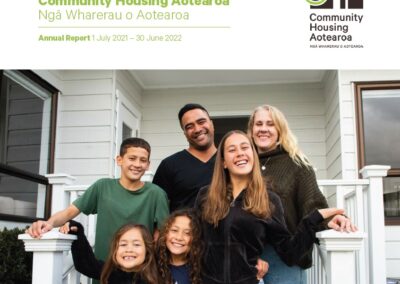Case Study_Monte Cecilia_FINAL

Published by the Ministry of Business, Innovation and Employment, using data and research from building research agency BRANZ and private sector building sector intelligence firm Pacificecon, the latest pipeline report lowers the 2017 report’s forecast that total construction activity would peak at $42 billion in 2020, following slower rates of construction in 2017 than it had expected.
In the latest report, it takes until 2022 for total construction sector activity to break through $40 billion in one year, rising to more than $41 billion in 2023, and with the potential to continue rising after that.
“For the first time since the report was initiated in 2013, a peak in total construction value is not expected within the (six year) forecast period,” it says.
It expects that some 220,000 building consents for new dwellings will be issued between 2018 and 2023, reaching 43,000 in 2023.
The report does not attempt to analyse why residential construction in 2017 grew by only 0.3 percent over 2016, compared with 2017 pipeline forecast of 10 percent growth. However, during that period, the residential construction market has been characterised by a combination of serious skills shortages, cost escalation, and a growing reluctance by trading banks to lend on multi-dwelling and apartment projects. In the year, house prices in Auckland have stabilised somewhat, albeit at very high levels relative to average household incomes.
Releasing the report, Housing Minister Jenny Salesa said the report indicated sustained construction sector growth rather than a “boom-bust cycle”.
“New Zealand’s traditional construction boom-bust cycles have undermined the certainty and confidence needed to grow skills and sustain a robust workforce over time,” she said in a statement. “Gains made in peak periods dissipate and the effort to gear up again has taken energy that could have been more usefully applied to supporting innovation and efficiencies.
“Greater confidence and certainty within the construction sector will provide a more stable foundation as we embark on the decade-long KiwiBuild project to deliver an additional 100,000 modest starter homes into the market,” Salesa said.
The pipeline report does not attempt to account for the impact of KiwiBuild, which was officially launched only this month. Its forward projections of house construction are based on “Statistics New Zealand’s 2017 household formation data, which provides estimates of the number of new dwellings required, derived from population estimates”.
“Over the next six year, the number of dwelling units consented is forecast to increase by 39 percent to a forecast high of 43,000 dwelling units in 2023,” the report says. “In 2018, dwelling unit consents are expected to pass the 2004 peak (31,243 dwellings) and grow year-on-year throughout the forecast period. This is considerably higher and longer term dwelling growth than was forecast in 2017.”
It notes that the Auckland new housing market is changing fast, with building consents for multi-unit dwellings – mainly apartments – overtaking consents issued for standalone houses in Auckland last year.
“In 2017, 51 percent of dwellings consented in Auckland were multi-unit dwellings,” the report says. That tipping point had not previously been expected until 2022. The forecast is now for more than 60 percent of all new Auckland dwelling consents to be for multi-unit developments by 2023.
Read the story on Scoop here.
Community-Housing-Aotearoa_Media-Release_Westpac-Report_Affordable-Home-Ownership_23-July-2024-4.pdf
Community Housing Aotearoa (CHA) Monthly Newsletter – 8 July 2024
Community Housing Aotearoa (CHA) Monthly Newsletter – 10 June 2024